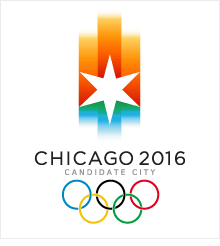Chicago loses Olympic bid to Rio
The Windy City would have faced a tough financial challenge experts say. It already spent an estimated $100 million in its failed effort.
 |
| Chicago is spending about $100 million on its bid to host the Olympics in 2016. |
NEW YORK (CNNMoney.com) -- Chicago lost its bid to host the 2016 Summer Olympics Friday to Rio de Janeiro, Brazil.
The news was announced by Jacques Rogge, president of the International Olympic Committee, at a meeting in Copenhagen, Denmark.
"Like in every competition, there can be only one winner," said Rogge, just prior to announcing Rio as the host city.
With help from hometown heroes like the Obamas, the Windy City was aggressively lobbying to host the games. The upside to the rejection is that Chicago possibly saved money, as making the Olympics profitable would not have been an easy win.
Chicago was competing with Tokyo, Madrid, Spain and Rio de Janeiro in wooing the International Olympic Committee in Copenhagen.
The IOC also rejected Tokyo and Madrid Friday.
Chicago 2016, the organization leading the effort to host the games, had projected a cost of $3.8 billion, including a "rainy day" fund of $450 million in case of unforeseen increases if the city won the bid.
But there was good reason to be skeptical of that projection, said Robert Livingstone, producer of GamesBids.com and a leading expert in the Olympic selection process. Host cities routinely overrun their Olympic budgets, he said.
"It's going to be more expensive than we think it's going to be, because it typically is," Livingstone said, before the decision was made Friday. "I think every [host] city is going to lose money. It's not an efficient event."
The bidding process alone cost Chicago about $100 million, Livingstone estimated.
An argument often made by host city advocates is that presenting the international spectacle is good for a local economy. But such "trickle-down effects," like benefits to local businesses, are "almost impossible to measure," Livingstone said.
"I think a lot of people look at the Olympics, and they try to justify it by how much money it adds to the economy," said Livingstone. "[But] if you're in this to make money and improve your economy, you're in it for the wrong reasons."
A Chicago 2016 spokesman, who asked not be named, had stood by the $3.8 billion projection. "Our numbers are completely feasible thanks to the infrastructure already in place, the number of venues already built and the temporary nature of the majority of those we're planning to build," he wrote, in an e-mail prior to the IOC rejection. ![]()

